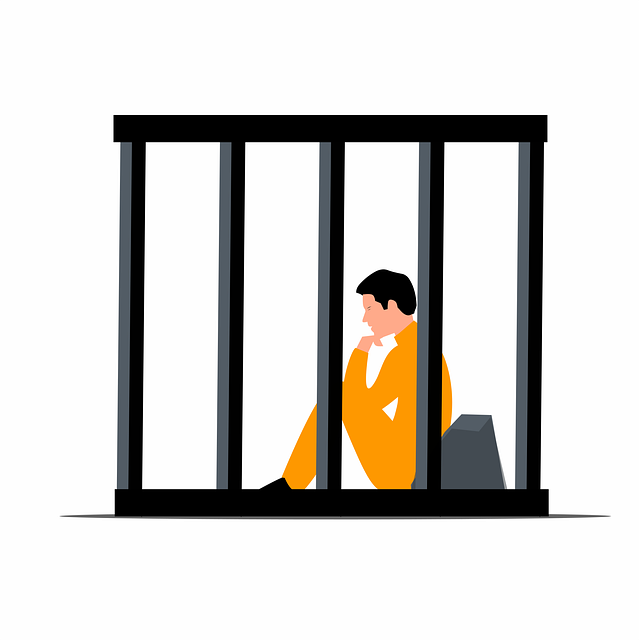Teens with a history of DUI, particularly from disadvantaged backgrounds, face higher reoffending risks due to interrelated social, economic, mental health, and substance abuse factors. Effective management of high-risk reoffenders requires comprehensive support addressing these underlying issues early. Comprehensive rehabilitation programs for teens focus on individualized treatment plans, counseling, group therapy, peer support, education, and specialized DUI management workshops. Tailored interventions in long-term success stories demonstrate the power of holistic treatment, early intervention, and personalized support to reduce recidivism rates and empower teens to become positive change agents in their communities.
In a bid to curb recurring criminal behavior, this article delves into the complex world of teen rehabilitation, focusing on high-risk reoffenders. We explore key factors contributing to youth DUI (Driving Under the Influence), examining its devastating impact. Leveraging evidence-based strategies and customized programs tailored to individual needs, we highlight successful rehabilitation stories. By understanding the challenges and implementing effective solutions, we chart a course for improved management of high-risk teen offenders, aiming to prevent future DUIs and promote long-term positive outcomes.
- Understanding High-Risk Teen Reoffenders: A Comprehensive Look at Factors
- The Impact of DUI (Driving Under the Influence) on Youthful Offenders
- Effective Strategies for Rehabilitation: Turning Lives Around
- Customized Programs: Addressing Individual Needs of At-Risk Teens
- Long-Term Success Stories and the Future of Teen Rehabilitation
Understanding High-Risk Teen Reoffenders: A Comprehensive Look at Factors

Many teens who have been involved in criminal activities, particularly those with a history of DUI (drunk driving), are considered high-risk reoffenders. Understanding the factors that contribute to this risk is crucial for effective rehabilitation and reducing recidivism rates. Several key elements play a significant role in identifying and addressing these at-risk teens.
Social and economic factors, such as family background, education level, and exposure to poverty, can increase the likelihood of reoffending. Teens from disadvantaged backgrounds may face limited opportunities and resort to criminal behavior out of desperation or a lack of viable alternatives. Additionally, mental health issues, substance abuse, and traumatic experiences are common among high-risk teen offenders, often interrelated and exacerbating each other. Early intervention and comprehensive support addressing these underlying challenges are vital for successful rehabilitation and preventing future DUI offenses.
The Impact of DUI (Driving Under the Influence) on Youthful Offenders

The impact of Driving Under the Influence (DUI) on youthful offenders is profound and far-reaching, making it a critical aspect to address in teen rehabilitation programs aimed at getting them back on track. When young individuals engage in DUI, they not only put their lives at risk but also face significant legal consequences. These consequences often include hefty fines, license suspension or revocation, and potential jail time, all of which can disrupt their education, future job prospects, and social relationships.
More importantly, DUI significantly increases the likelihood of a youth becoming a high-risk reoffender. The stress and peer pressure associated with adolescence, combined with the consequences of DUI, can lead to a vicious cycle of risky behaviors. Effective management of DUI cases among young offenders involves not just legal penalties but also comprehensive rehabilitation programs that target underlying issues such as substance abuse, mental health concerns, or social influences that contributed to the initial DUI incident.
Effective Strategies for Rehabilitation: Turning Lives Around

Rehabilitation programs for teens, especially those facing DUI charges or at risk of reoffending, require a multifaceted approach to be truly effective. Firstly, individualised treatment plans are crucial. Each young person’s journey is unique, and tailored interventions can address specific triggers and underlying issues. This might include one-on-one counselling, group therapy sessions, or even peer support groups. By providing a safe space for expression and sharing experiences, these strategies foster personal growth and build resilience against future challenges.
Additionally, education plays a pivotal role in preventing recidivism. Equipping teens with knowledge about the impact of their actions and the consequences of reoffending can serve as a powerful deterrent. Workshops focused on responsible decision-making, conflict resolution, and healthy coping mechanisms can empower these individuals to make positive choices. Moreover, focusing on DUI management through specialised programs can help high-risk reoffenders understand the dangers of substance abuse behind the wheel and encourage them to adopt safer habits.
Customized Programs: Addressing Individual Needs of At-Risk Teens

At-risk teens often face unique challenges that require tailored rehabilitation approaches to effectively turn their lives around. Customized programs are designed to address individual needs, ensuring that each teenager receives the specific support they require to overcome addiction, behavioral issues, or other risk factors. This personalized approach is particularly crucial for high-risk reoffenders facing DUI charges, as their road to recovery may involve additional barriers such as legal repercussions and a history of substance abuse.
By tailoring programs to specific needs, rehabilitation centers can offer targeted interventions, including individual counseling, group therapy sessions, and skills training. Such personalized support helps teens develop coping mechanisms, build resilience, and acquire the tools needed to stay on track after completion of their program. This method also facilitates better DUI management by addressing underlying issues that may have contributed to risky behaviors in the first place.
Long-Term Success Stories and the Future of Teen Rehabilitation

In the realm of teen rehabilitation, success stories that span years are a testament to the effectiveness of tailored interventions. Many former high-risk reoffenders, particularly those with DUI (driving under the influence) management issues, have turned their lives around through dedicated programs. These individuals, once on a path of recurring offenses and potential long-term incarceration, now contribute productively to society. This transformation is not merely a one-time achievement but signifies lasting recovery, where participants regain control over their lives, break free from the cycle of addiction and crime, and become role models for their peers.
The future of teen rehabilitation holds great promise with evolving strategies focusing on holistic treatment, early intervention, and personalized support. By learning from these success stories, we can design programs that cater to individual needs, address underlying causes, and foster skills for long-term sustainability. This approach not only reduces recidivism rates but also empowers teens to become agents of positive change in their communities, breaking the cycle of high-risk behavior and DUI management once and for all.
The journey towards rehabilitating high-risk teen reoffenders, especially those involved in DUI, is a complex yet rewarding endeavor. By understanding the unique factors contributing to their behavior and implementing effective strategies tailored to individual needs, we can significantly enhance their chances of success. Customized programs that address mental health, education, and vocational training have proven to be game-changers, fostering long-term positive outcomes. As we look ahead, continuing to share success stories and refining rehabilitation methods will be crucial in managing DUI and ensuring these teens thrive, breaking the cycle of reoffending.






